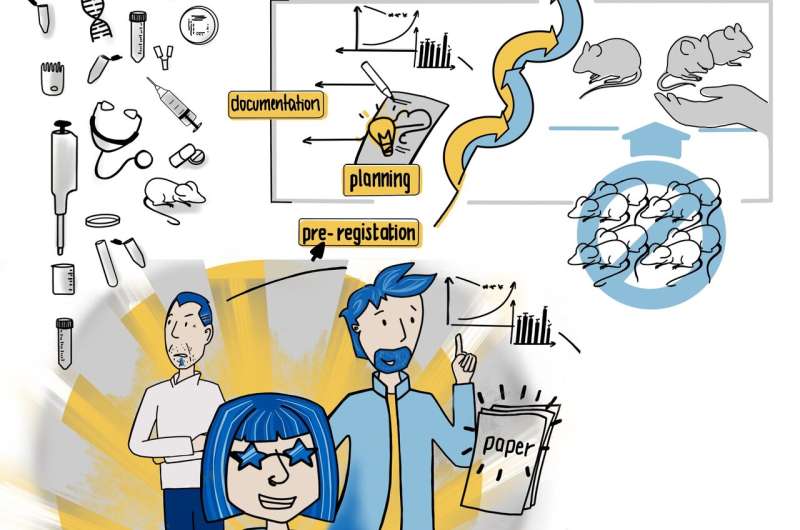Animal Study Registry could improve data quality and reduce wasted lives

The irreproducibility of preclinical data is impeding scientific progress and the development of effective new medical therapies. The Animal Study Registry was launched in January 2019 as a response to the reproducibility crisis and the scientific community's quest for greater transparency in animal research in order to enhance both the knowledge gained from animal studies and the reproducibility of results. The same calls that led to the pre-registration of clinical trials led to the Animal Study Registry, which pre-registers and documents details of animal studies. This free registry was designed for exploratory and confirmatory studies within applied science as well as basic and preclinical research to increase the transparency and reproducibility of bioscience research and to promote animal welfare.
The registration form serves as a structured query for scientists, who answer detailed questions about study design, methods, and statistics before they start the first experiments. Users can restrict the visibility of their registered studies to protect their intellectual property for up to five years, after which the full content of the study becomes publicly accessible. The platform is embedded in the IT infrastructure of the German federal government, which provides continuity and data security. With the pre-registration of studies, more complete data about animal experiments will be preserved for the use of the scientific community, and redundant experiments can be avoided. Pre-registration of animal research studies shows researchers' commitment to open science, transparency and data quality, the authors argue.
"With the Animal Study Registry, we offer scientists worldwide a service that will significantly support the planning of animal experiments and at the same time contribute to the improvement of animal welfare. We are convinced that theactual additional effort for registration is very small in comparison to the increased informative value of the experiment. Future meta-analyses should show how ASR can improve the knowledge gain. However, additional incentives from the scientific community are still needed to make the ASR more acceptable in the future."
More information: Bert B, Heinl C, Chmielewska J, Schwarz F, Grune B, Hensel A, et al. (2019) Refining animal research: The Animal Study Registry. PLoS Biol 17(10): e3000463. doi.org/10.1371/journal.pbio.3000463
Journal information: PLoS Biology
Provided by Public Library of Science



















